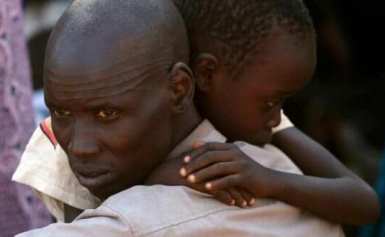South Sudan army targeted civilians in tribal attacks: HRW
December 19, 2013 (JUBA) – South Sudanese army (SPLA) soldiers have been accused of carrying out ethnic killings during recent clashes in the South Sudan capital, Juba, according to eyewitness accounts provided to Human Rights Watch (HRW).

Thousands of people have fled areas of Juba, with more than 16,000 people seeking shelter at the UN compound.
The fighting followed deepening tensions between president Salva Kiir, an ethnic Dinka, and the former vice-president, Riek Machar, a Nuer.
In a report released on Thursday, HRW said witnesses said government soldiers and police had questioned residents about their ethnicity and deliberately shot ethnic Nuer.
The report, which includes accounts from eyewitnesses, aid workers and victims, details a disturbing number of tribal-related attacks and killings.
“The awful accounts of killings in Juba may only be the tip of the iceberg,” said Daniel Bekele, HRW’s Africa director.
HRW says it has also received reports that ethnic Dinka may have been targeted in Juba and in the Jonglei capital, Bor, by Nuer soldiers.
“We are deeply concerned that ethnically-based attacks on all sides will lead to revenge attacks and more violence,” Bekele said.
One woman told HRW that 15 Nuer civilians, including women and children, were killed by unidentified gunmen in a Nuer neighbour’s house in the Gudele area of Juba on Monday.
“I was hiding during the shooting, but saw the bodies afterwards. They are still there, the Dinka are not allowing them to be moved”, she said.
The woman said she saw armed men from both the Dinka and Nuer tribes moving from house to house apparently searching for members of the other ethnic group.
Three independent sources who were not present at the scene told HRW that soldiers forcibly dragged Nuer minister Reverend Simon Nyang Lam from his house in the Khor William neighbourhood and killed him.
“He thought he would be OK because he was a pastor”, a relative said, adding that another man from his family had also been taken from his house in the Amarat neighbourhood, searched and then shot on the spot.
Another Nuer man told HRW that soldiers shot and killed his cousin and two other civilians outside his home on Monday morning in the Misah Sabah neighbourhood as he hid under a bed.
“I heard them crying when they were killing them”, he said.
Another eyewitness at the scene independently collaborated the incident, saying “When they failed to answer if they were Dinka or Nuer, they were shot.”
Civilians of different ethnicities were also killed and injured during crossfire and by tanks, with residents describing two cases in which tanks were driven into houses.
“I was lucky as I was in my house just before it was completely destroyed”, an NGO worker told HRW.
Another aid worker said he saw the “completely smashed” bodies of two men and that witnesses told him a tank had run them over.
FIGHTING SPREADS
As fighting spreads outside Juba, the conflict has taken on increasing tribal dimensions, raising fears of a full-scale civil war.
Sixteen people were killed after Nuer oil workers attacked their Dinka colleagues in Unity state’s Unity and Tharjath oil fields on Thursday.
The incident followed fighting Jonglei state capital, Bor, which is now under the control of South Sudanese army defectors loyal to dissident commander Gen. Peter Gadet Yak, who overran military bases on Tuesday and took over the town on Wednesday evening.
Gadet reportedly broke away from the SPLA after being angered by reports Nuer were being targeted in Juba.
The South Sudan Red Cross said the death toll in Bor now stood at 22, including three children who drowned crossing the Nile while attempting to flee the violence.
HRW has called on South Sudanese leaders to take stronger measures to ensure soldiers under their control don’t commit ethnic violence and abuses.
It has also called on the UN to ensure it fully implements its mandate to protect civilians in Juba and other flashpoint areas.
(ST)
